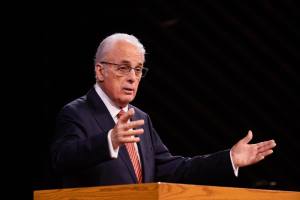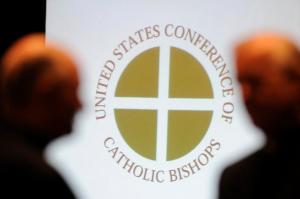For Evangelicals in Politics: Is the Bible a Good Enough Argument?
WASHINGTON – The Bible is not sufficient for evangelicals when they address public policy issues, participants agreed at a Wednesday conference at the American Enterprise Institute called "Is the Good Book good enough? Evangelical perspectives on public policy."
Tackling issues as diverse as poverty, immigration, criminal justice, economic regulation, nuclear proliferation, and human rights, the panelists demonstrated how evangelical traditions could make, or have made, unique contributions to public policy debates. Most of the participants were contributors to an edited book of the same name, first published in 2011.
The conference began with a keynote address by Michael Cromartie, vice president of the Ethics and Public Policy Center, which addressed how evangelicals should engage in public policy. He encouraged evangelicals to rethink how they have typically been involved in politics in the past. Evangelicals who enter the public square should practice civility and prudence, should draw upon their traditional teaching about natural law and common grace, to develop a broadly accessible language to address policy concerns, and should develop an "Augustinian sensibility" regarding what could be accomplished through politics.
"Civility is not a copout," Cromartie said, noting that evangelicals can be civil without diminishing their convictions. Evangelicals should strive for "convicted civility," he urged.
Evangelicals "can never win the culture," Cromartie added. Drawing upon St. Augustine's City of God, an "Augustinian sensibility" would recognize that the "'city of man' is always at odds with the 'city of God.'"
Responding to Cromartie, Timothy Dalrymple, director of content at Patheos.com, added that evangelicals in the public square should strive for "radical honesty," "radical charity," and "radical independence." They should be the most honest and most charitable among those engaged in political debates, and they should demonstrate that they owe no allegiance to a particular political party.
There were 112 people in attendance at the event, plus it was live streamed to many Christian college campuses across the country. The conference was part of AEI's "Values and Capitalism" project, which seeks to engage with students at Christian colleges on issues related to morality and free enterprise.
Several of the questions after each of the three panels were geared toward the interests of Christian college students.
Rachel Kuyper, a student from Hope College in Holland, Mich., at the event, responded to concerns expressed by some of the speakers that young Christians are being influenced too much by the culture around them and are not well grounded in scripture. "What is the younger generation supposed to do?" she asked.
"No one obligated to participate in the disorder of their day," answered Jeff Polet, a political science professor at Hope College. "The first thing you do is apply yourself to your studies, ... [and] cultivate your moral imagination, which enables you to think of all alternative possibilities." He also encouraged young Christians to spend less time with TV and the internet and more time with books and authority figures they trust.
Videos of the conference is available on the AEI website.




























